Experiencing neurological problems years after a car accident can be a daunting reality. Many individuals initially focus on immediate injuries, overlooking the potential for long-term neurological issues that can manifest months or even years later. These problems can significantly impact quality of life, affecting everything from cognitive function to physical mobility. This article explores the types of neurological problems that can arise years after a car accident, their potential causes, diagnosis, and available treatment options.
Understanding Delayed Neurological Issues After a Car Accident
Car accidents, even seemingly minor ones, can cause a cascade of events within the body, leading to delayed neurological symptoms. The initial impact can trigger inflammation, disrupt nerve pathways, and even cause subtle brain damage that may not immediately be apparent. These underlying issues can then slowly progress over time, eventually manifesting as neurological problems.
Common Neurological Problems Years After a Car Accident
Several neurological problems can emerge years after a car accident. These include:
- Post-Concussion Syndrome (PCS): Characterized by persistent symptoms like headaches, dizziness, memory problems, and difficulty concentrating, PCS can significantly impact daily life.
- Post-Traumatic Epilepsy (PTE): Seizures can develop months or even years after a head injury sustained in a car accident.
- Peripheral Neuropathy: Damage to the peripheral nerves can result in numbness, tingling, and pain in the extremities.
- Chronic Pain: Persistent pain, often in the neck, back, or head, can be a debilitating consequence of a car accident. This pain can be neuropathic, meaning it originates from damage to the nervous system.
- Cognitive Impairment: Difficulties with memory, attention, and executive function can emerge years after a car accident, impacting a person’s ability to work, learn, and perform daily tasks.
- Movement Disorders: Tremors, muscle stiffness, and difficulty with balance and coordination can be neurological consequences of a car accident.
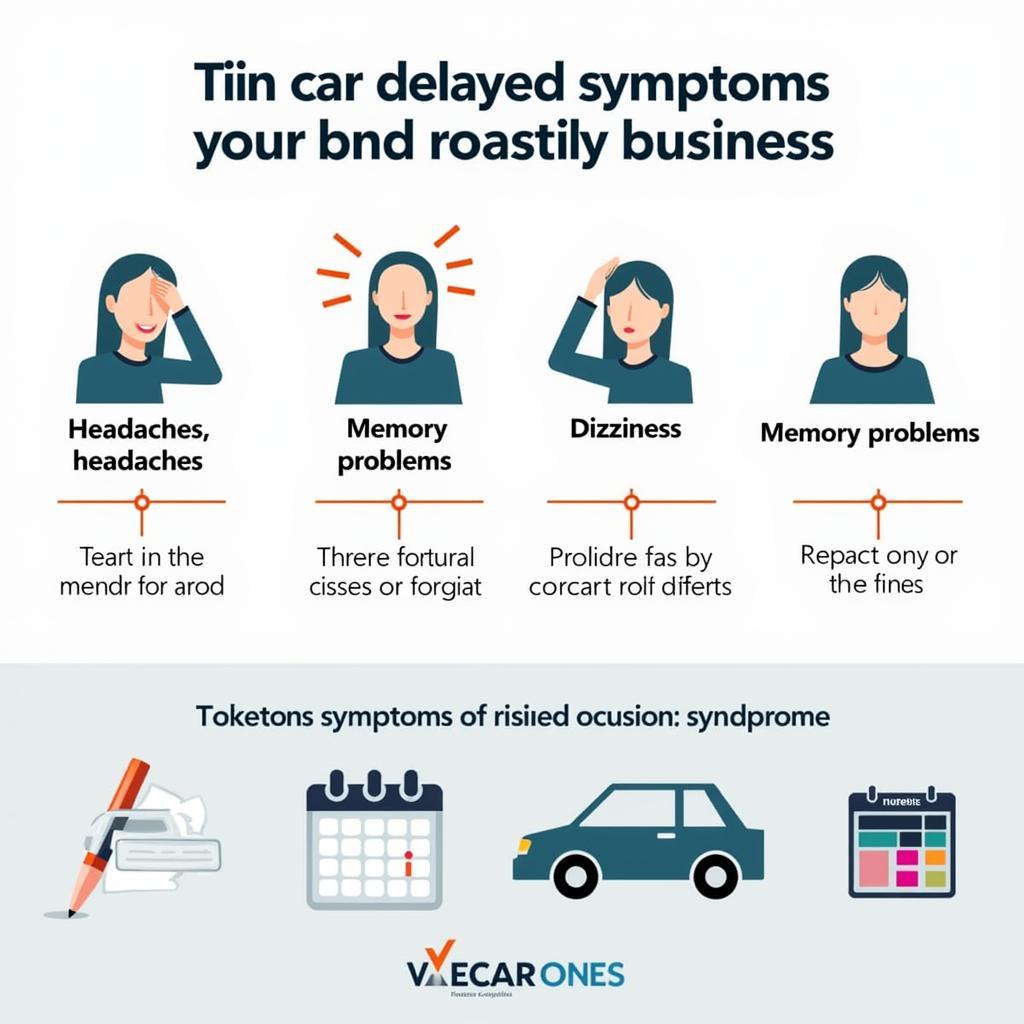 Delayed Neurological Symptoms After a Car Accident
Delayed Neurological Symptoms After a Car Accident
Why Do Neurological Problems Sometimes Appear Years Later?
The delayed onset of neurological symptoms can be attributed to several factors. Sometimes, the initial trauma causes microscopic damage that progressively worsens over time. Inflammation and scarring in the brain or nervous system can also contribute to delayed symptoms. In other cases, the body’s initial compensatory mechanisms may mask underlying neurological issues, which only become apparent as these mechanisms fail.
How are Delayed Neurological Problems Diagnosed?
Diagnosing delayed neurological problems requires a thorough evaluation by a neurologist. This evaluation typically involves a review of the patient’s medical history, a physical examination, and neurological testing. Imaging studies, such as MRI and CT scans, may also be necessary to identify structural abnormalities in the brain or spinal cord.
 Neurological Examination After Car Accident
Neurological Examination After Car Accident
Treatment Options for Neurological Problems After a Car Accident
Treatment for neurological problems after a car accident depends on the specific diagnosis. Options include medication, physical therapy, occupational therapy, cognitive rehabilitation, and in some cases, surgery.
“Early intervention is crucial in managing neurological problems after a car accident,” says Dr. Emily Carter, a renowned neurologist specializing in traumatic brain injuries. “Even if symptoms seem minor initially, seeking medical attention is essential for accurate diagnosis and prompt treatment, which can significantly improve long-term outcomes.”
Can Neurological Problems After a Car Accident Be Prevented?
While it’s impossible to completely eliminate the risk of neurological problems after a car accident, certain precautions can help minimize the severity of injuries. Always wear a seatbelt, ensure that airbags are functioning correctly, and avoid distractions while driving. Prompt medical attention after any car accident, even a seemingly minor one, is also crucial for early diagnosis and intervention.
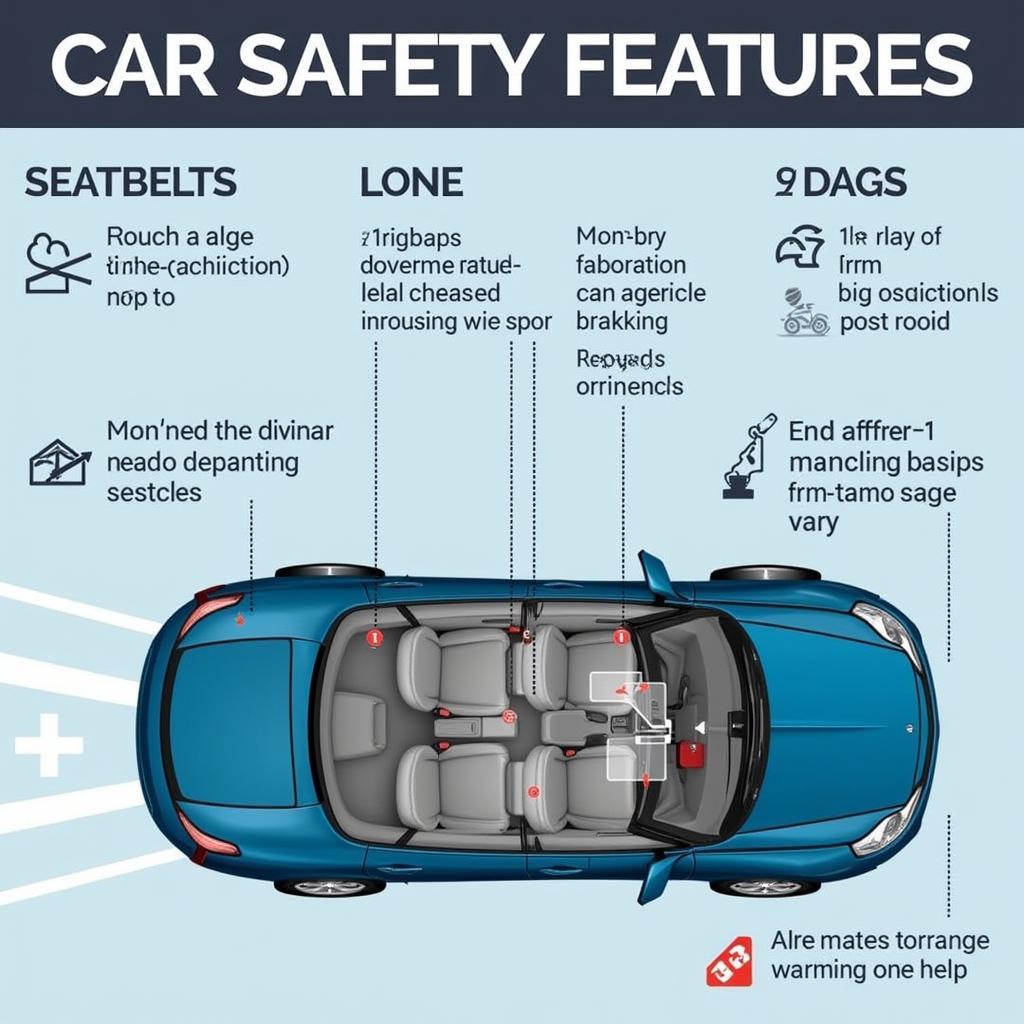 Car Accident Prevention Measures
Car Accident Prevention Measures
Living with Neurological Problems After a Car Accident
Living with neurological problems after a car accident can be challenging, but with proper management and support, individuals can improve their quality of life. Support groups, counseling, and lifestyle modifications can help individuals cope with the physical and emotional challenges associated with these conditions.
“It’s important to remember that recovery is a journey, not a destination,” adds Dr. Michael Reed, a rehabilitation specialist with extensive experience working with car accident victims. “Patience, perseverance, and a strong support system are essential for navigating the challenges of living with neurological problems after a car accident.”
Conclusion
Neurological problems years after a car accident can be a complex and challenging issue. Understanding the potential causes, symptoms, and available treatment options is crucial for effective management. If you are experiencing neurological problems following a car accident, seeking professional medical advice is essential. Contact AutoTipPro at +1 (641) 206-8880 or visit our office at 500 N St Mary’s St, San Antonio, TX 78205, United States, for expert advice and support.
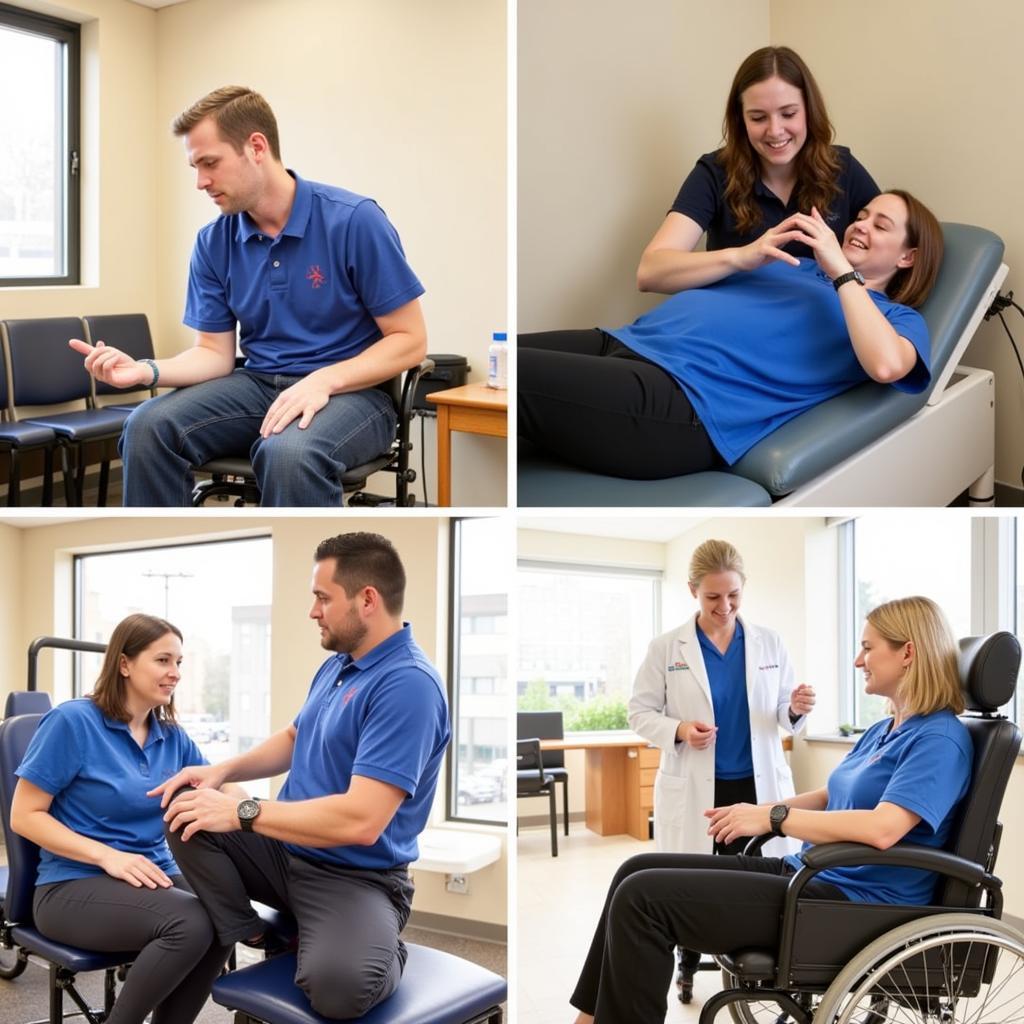 Neurological Rehabilitation Therapy
Neurological Rehabilitation Therapy
FAQ
- What are the early signs of neurological problems after a car accident? Early signs can include headaches, dizziness, memory problems, and changes in mood or behavior.
- How long can post-concussion syndrome last? PCS can last for weeks, months, or even years, depending on the severity of the concussion.
- Can neurological problems after a car accident be cured? While some neurological problems can be fully resolved, others may require ongoing management.
- What should I do if I experience neurological symptoms years after a car accident? Consult a neurologist immediately for a thorough evaluation and diagnosis.
- Are there support groups for people with neurological problems after car accidents? Yes, various support groups and online communities offer valuable resources and emotional support.
- Can I still drive if I have neurological problems after a car accident? Your ability to drive will depend on the specific neurological problems you are experiencing and should be assessed by a medical professional.
- What legal options are available if my neurological problems are a result of someone else’s negligence in a car accident? Consult a personal injury attorney to explore your legal options.




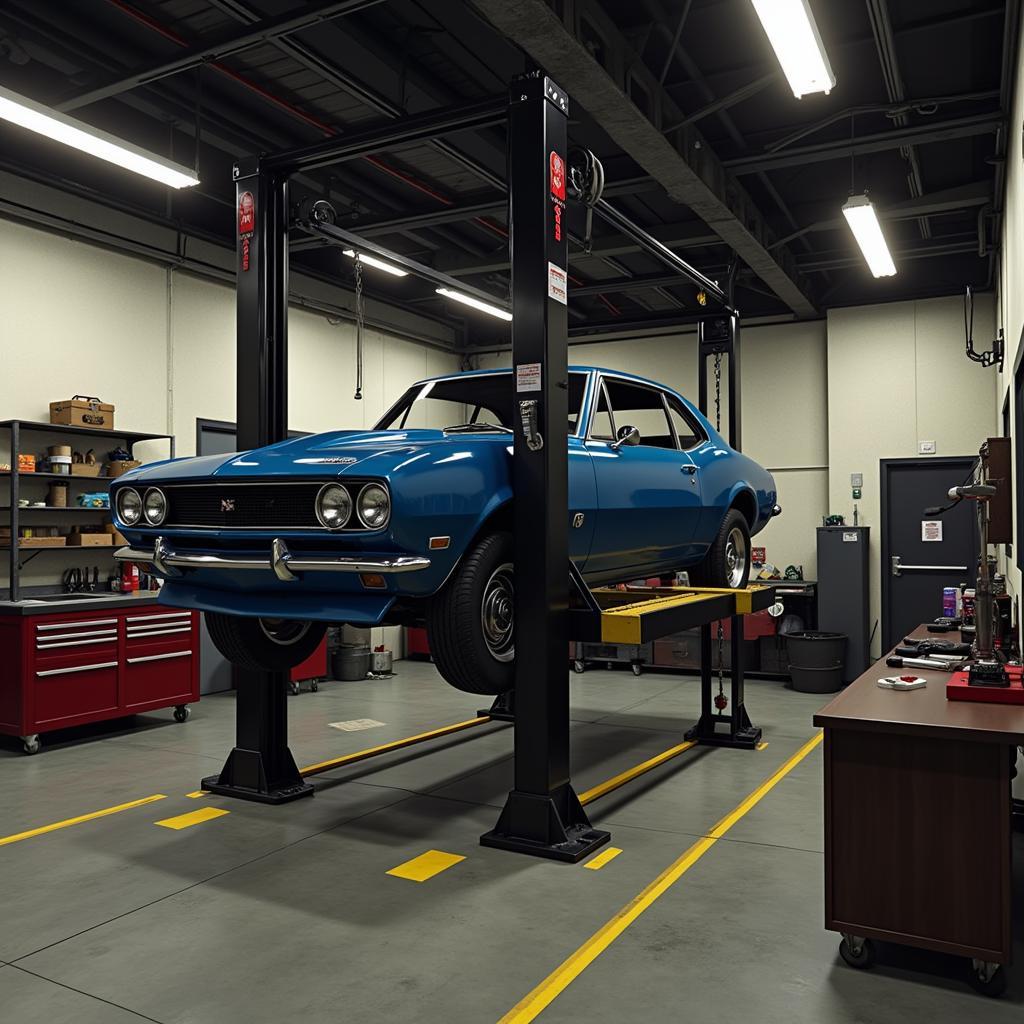
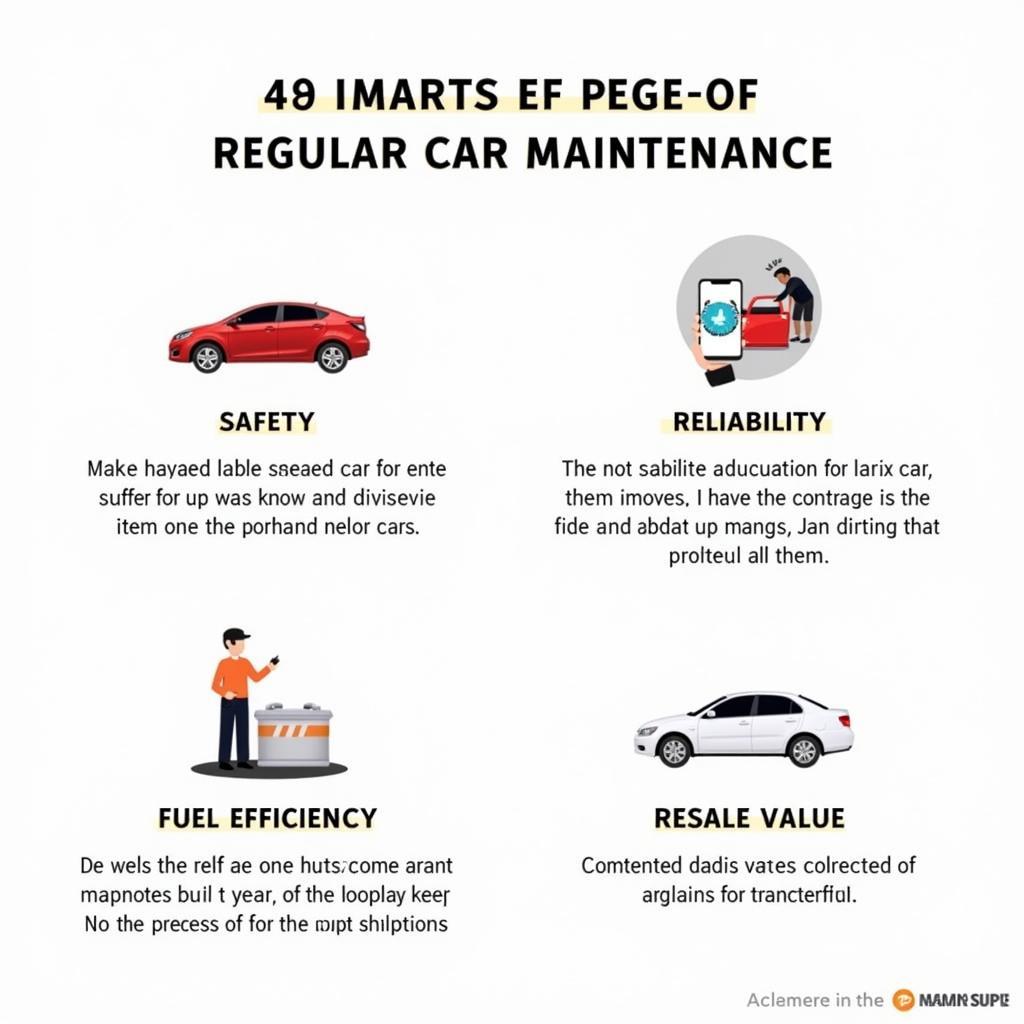

Leave a Reply